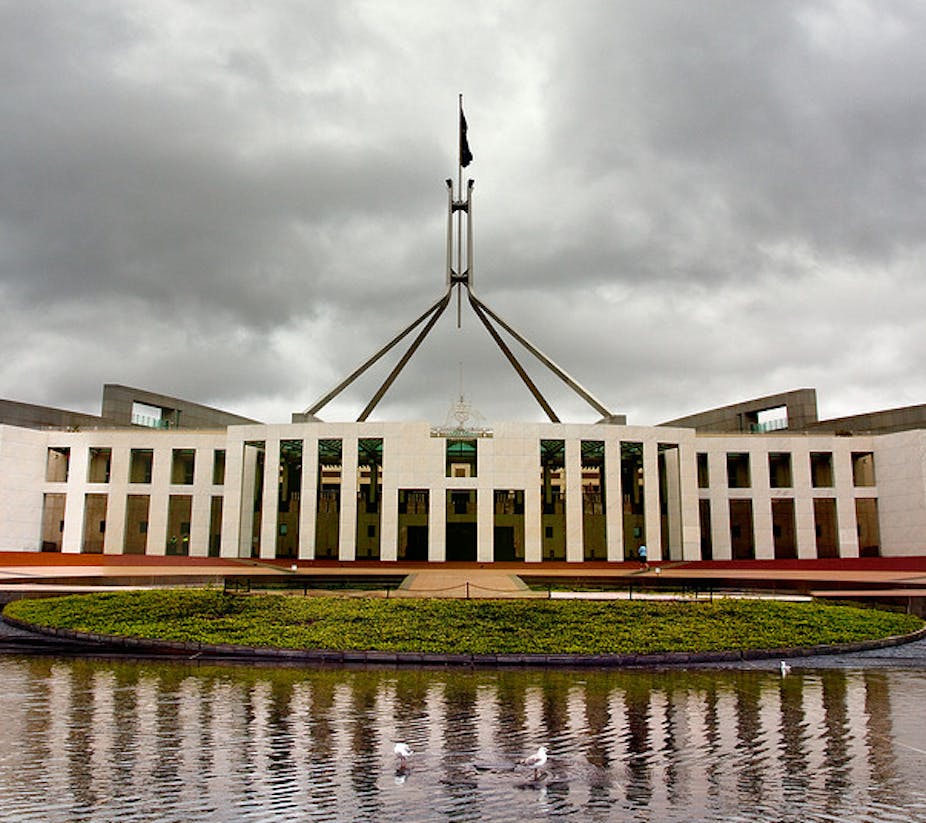Whether you’re a cynic or an idealist, most of us believe there should be rules restraining big money in politics. But after a decade of stop-start debate on the issue, a Commonwealth parliamentary report into the funding of political campaigns has proven to be a timid achievement.
It is not that the report’s authors, including those from the government side, are unaware of the bigger issues. Rather, they have avoided them for another day and left many reforms in the too-hard basket.
Big money politics
Electoral politics is resource intensive. In 2007-2008, the four major parties declared revenues of almost $210m. Add to that tens of millions more spent on electoral politicking via MPs allowances and through parties’ associated entities. As well as a share of government campaign advertising and, increasingly, broadcast campaigns by sectoral groups like miners.
The fundamental question is “why regulate political funding?”
There are three good reasons, and they all relate to what we mean by “corruption”.
Buying influence
For many, corruption means buying influence. In that, the Australian system focuses on disclosure and sources. The report recommends a few welcome improvements, some reheated from the Rudd days.
The donation disclosure trigger will reduce from about $12,000 (per party division) to $1000 (to a party as a whole). Donations are not to be sourced from foreign funds and we will move to biannual disclosure; perhaps eventually to real time disclosure, certainly for big donations.
The second meaning of corruption is the undermining of political equality. In that, Australia does little. The report still allows for unlimited donations and expenditure at the national level. It will remain up to parties to decide if they play footsie with wealthy rent-seeking (eg. finance) or socially destructive (eg. tobacco and gaming) sectors.
This status quo suits the major parties, because donations follow power and incumbency, whether present or anticipated.
The third conception, often overlooked, is corruption of political practice itself. This occurs at both the pragmatic and what I call “aesthetic” levels. Pragmatically, politicians will continue to devote energies to fawning to potential donors.
Aesthetically, it is wrong that unlimited money can supplant the republican ideal that politics should be primarily be about ideas, rhetoric, vision and citizen participation.
How do we compare?
The report acknowledges that Australia will retain the most laissez-faire system of almost all liberal democracies, especially amongst its anglophone cousins.
The United Kingdom and New Zealand cap expenditure and broadcast ads, Canada strictly limits donations and caps expenditure; even the US restrains donations on top of its more advanced disclosure system.
The report meekly says it doesn’t support capping donations “at the current time”, not even six-figure donations. It also consigns the obvious first step of limiting party expenditure to the too-hard basket, yet recommends that the government “investigate” capping lobby group campaigns. Restricting civil society but not parties would not only be illogical, it would be unconstitutional.
A tangled web
How did the Commonwealth reform agenda reach this impasse?
Around 2007, senior Liberal and Labor figures alike were embracing major reform. By 2010, Gillard, the Greens and Independents agreed to a “new paradigm”, including this inquiry. Expectations were high for equality-focused reforms.
Meanwhile, Labor and Liberal spokespeople were negotiating privately towards reducing the level of money in the system. Behind neo-liberal claims that political freedom somehow equates to unlimited big money, the real sticking point between the major parties is what to do about union contributions to the ALP.
Liberals see them as a free-kick given that modern Labor (at least when it is riding high) rakes in corporate contributions too. The Labor Party knows it needs union money when repairing itself in opposition and cannot find the path to cutting the gordian knot of its structural control by unions.
The Liberal instinct for national reform also, predictably, dulled as its electoral stocks rebounded.
State actions
Interestingly, the federal system is playing its role as an incubator. In the last couple of years, Labor governments in NSW and Queensland enacted donation caps and expenditure limits. The ACT parliament proposes to follow suit.
The O’Farrell Liberal government in NSW is not just keeping the limits, but extending them to a US inspired ban on corporate or union donations. (Unfortunately it goes further, using constitutionally dubious means designed to nobble the Labor-union nexus).
Commonwealth reform, however, appears stymied by two parties unable to come to grips with the wider democratic deficits undermining the legitimacy of their dominant institutional position.
Prime Minister Gillard was lampooned for suggesting a citizen’s assembly on climate change. But we could do with one on political finance. The average citizen is less likely than the major parties to think it desirable to persist with unrestricted money sloshing around national politics.

